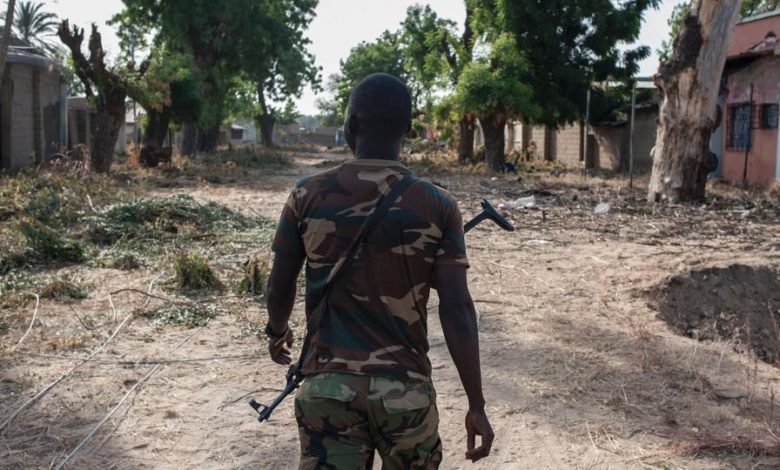
In mid‑June 2025, Benue State witnessed one of its deadliest outbreaks of violence when attackers struck Yelwata village in Guma Local Government Area. Over 150 lives were lost in a single night, reigniting national concern about recurring communal clashes. This article examines the incident in detail, explores the factors driving the violence, and outlines the multi‑layered response required to restore lasting security in Benue State.
1. The Yelwata Massacre: What Happened
On the night of June 13–14, gunmen descended on Yelwata, targeting homes and an open‑air market sheltering displaced families. Villagers report that attackers used guns and machetes, setting structures ablaze and blocking escape routes. By dawn, more than 150 people were confirmed dead, dozens injured, and over 3,000 residents forced to flee into surrounding forests.
2. Historical Roots of Communal Clashes
Communal violence in Benue dates back decades, rooted in competition between sedentary crop farmers (mostly Tiv and Idoma ethnic groups) and nomadic Fulani herders. Disputes over land ownership, water access and traditional grazing routes have periodically flared into violence, with both sides arming themselves for protection.
3. Environmental and Climate Pressures
-
Desertification in the Sahel has reduced grazing lands, pushing herders southward.
-
Erratic rainfall and prolonged droughts undermine both pasture growth and crop yields.
-
Soil degradation forces overlap in resource zones, intensifying clashes over dwindling farmland and water.
4. Socio‑Religious Dimensions
Although fundamentally about land and livelihoods, the conflict also carries ethno‑religious overtones. Most farming communities are Christian, while many herders are Muslim. This identity layer magnifies mistrust and can transform local disputes into broader confrontations.
5. Pattern of Recurring Violence
| Period | Area | Estimated Deaths |
|---|---|---|
| 2016–2018 | Guma & Gwer‑West LGAs | 200+ |
| 2019–2020 | Various Benue towns | 150+ |
| May 2025 | Gwer‑West | 42 |
| June 2025 | Yelwata (Guma LGA) | 150+ |
This pattern underscores both persistence and escalation, despite peace initiatives and legal reforms.
6. Human Toll and Displacement
Since 2016, more than 1,200 lives have been lost to communal violence in Benue. The Yelwata attack alone uprooted thousands: families lost homes, crops and livestock, and now rely on IDP camps around Makurdi where food, water and medical care are in short supply.
7. Security and Legal Measures
-
Anti‑Open Grazing Law (2017): Bans free‑range herding and promotes fenced ranches.
-
Curfews & Patrols: Military and police units deployed in hotspots.
-
Peace Committees: Government‑facilitated dialogues between farmers, herders and traditional leaders.
Challenges remain in enforcing these measures, especially in remote communities where security presence is minimal.
8. Role of Community Vigilantes
Perceived delays in official security responses have led villages to form self‑defense groups. While these vigilantes aim to protect their communities, some units have been accused of reprisal attacks, further complicating the security situation and risking human rights violations.
9. Humanitarian and NGO Response
Within 48 hours of the massacre, non‑governmental organizations mobilized:
-
Emergency medical teams provided surgery and trauma counseling.
-
Food, water and shelter distributions supported displaced families.
-
Long‑term programs include livelihood training, psychosocial support and rebuilding homes.
Sustained funding and coordination remain critical to meet growing humanitarian needs.
10. Roadmap to Lasting Peace
Experts and community leaders call for a holistic approach:
-
Operational Ranching Schemes: Develop and maintain fenced grazing reserves.
-
Community Policing Networks: Train rapid‑response teams and establish early‑warning systems.
-
Inclusive Peace Dialogues: Convene regular forums with farmers, herders, women, youth and traditional authorities.
-
Climate‑Smart Agriculture: Promote drought‑resistant crops and water‑conservation techniques to ease resource pressures.
-
Arms‑Control Drives: Conduct weapons‑collection campaigns to remove illicit small arms from circulation.
Only through coordinated security, development and dialogue efforts can Benue State break the cycle of violence and build a more stable future.
The article was originally published on Politics Nigeria.


